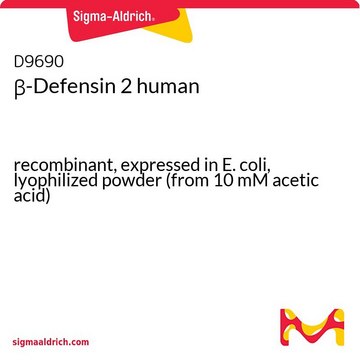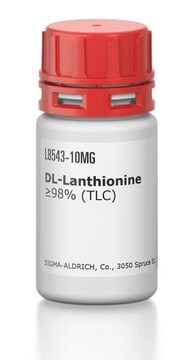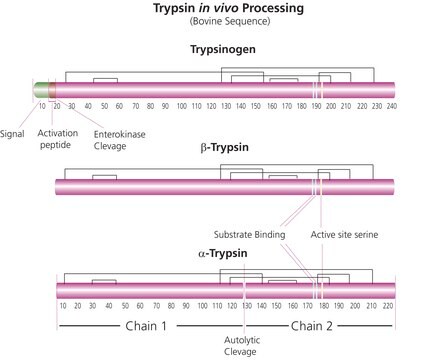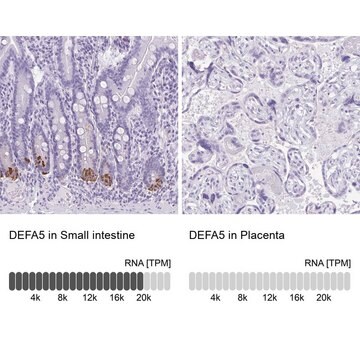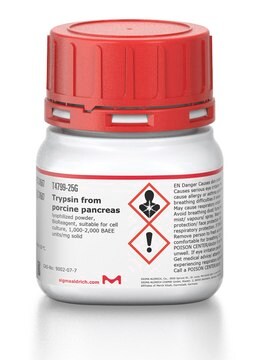P0098
Pediocin from Pediococcus acidilactici
≥95% (HPLC), buffered aqueous solution
Sign Into View Organizational & Contract Pricing
All Photos(1)
About This Item
Recommended Products
Quality Level
Assay
≥95% (HPLC)
form
buffered aqueous solution
concentration
0.1 mg/mL in 0.1 M sodium acetate pH 5.0
antibiotic activity spectrum
Gram-positive bacteria
Mode of action
cell membrane | interferes
shipped in
dry ice
storage temp.
−20°C
General description
Chemical structure: peptide
Application
Pediocins have molecular masses of about 2,700 to 4,000 Da. They are potential food biopreservatives used to control food-borne pathogens and spoilage.
Biochem/physiol Actions
Pediocins are class IIa bacteriocins that are produced by Pediococcus acidilactici. They are cationic peptides with molecular masses of about 2,700 to 4,000 Da, that show strong activity against pathogenic bacteria such as Listeria monocytogenes, Clostridicum perfringes, Enterococcus faecalis, and Staphylococcus aureus.4 This antimicrobial action of pediocins is based on interactions with the cytoplasmic membrane, resulting in pore formation and cell death. These interactions also cause a change in membrane potentials, which leads to a loss of the proton motive force and an efflux of intracellular ions, ultimately causing cell death. They have been shown to inhibit Listeria monocytogenes.
Other Notes
50ug
Keep container tightly closed in a dry and well-ventilated place.
Storage Class Code
12 - Non Combustible Liquids
WGK
WGK 1
Flash Point(F)
Not applicable
Flash Point(C)
Not applicable
Personal Protective Equipment
dust mask type N95 (US), Eyeshields, Gloves
Choose from one of the most recent versions:
Already Own This Product?
Find documentation for the products that you have recently purchased in the Document Library.
M J Pucci et al.
Applied and environmental microbiology, 54(10), 2349-2353 (1988-10-01)
The bacteriocin produced by Pediococcus acidilactici PAC 1.0, previously designated PA-1 bacteriocin, was found to be inhibitory and bactericidal for Listeria monocytogenes. A dried powder prepared from PAC 1.0 culture supernatant fortified with 10% milk powder was found to contain
A K Bhunia
Applied and environmental microbiology, 60(8), 2692-2696 (1994-08-01)
Monoclonal antibody (MAb) R2-AR against pediocin RS2 was developed. Mice were immunized for 12 weeks with pediocin RS2 conjugated to a polyacrylamide gel. Two hybridoma fusions yielded an MAb that in Western blots (immunoblots) reacted only with pediocins RS2 and
Articles
With bacterial resistance and emerging infectious diseases becoming potential threats to humans, ribosomally synthesized antimicrobial peptides have become a promising focus area in antibiotic research.
Our team of scientists has experience in all areas of research including Life Science, Material Science, Chemical Synthesis, Chromatography, Analytical and many others.
Contact Technical Service